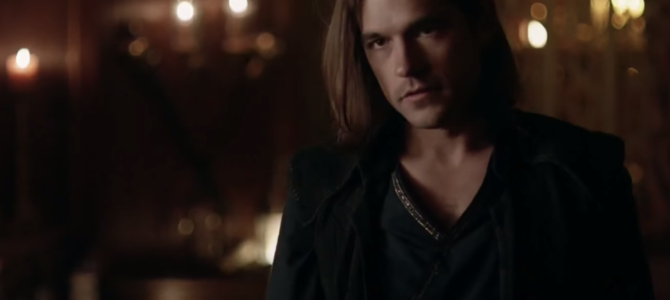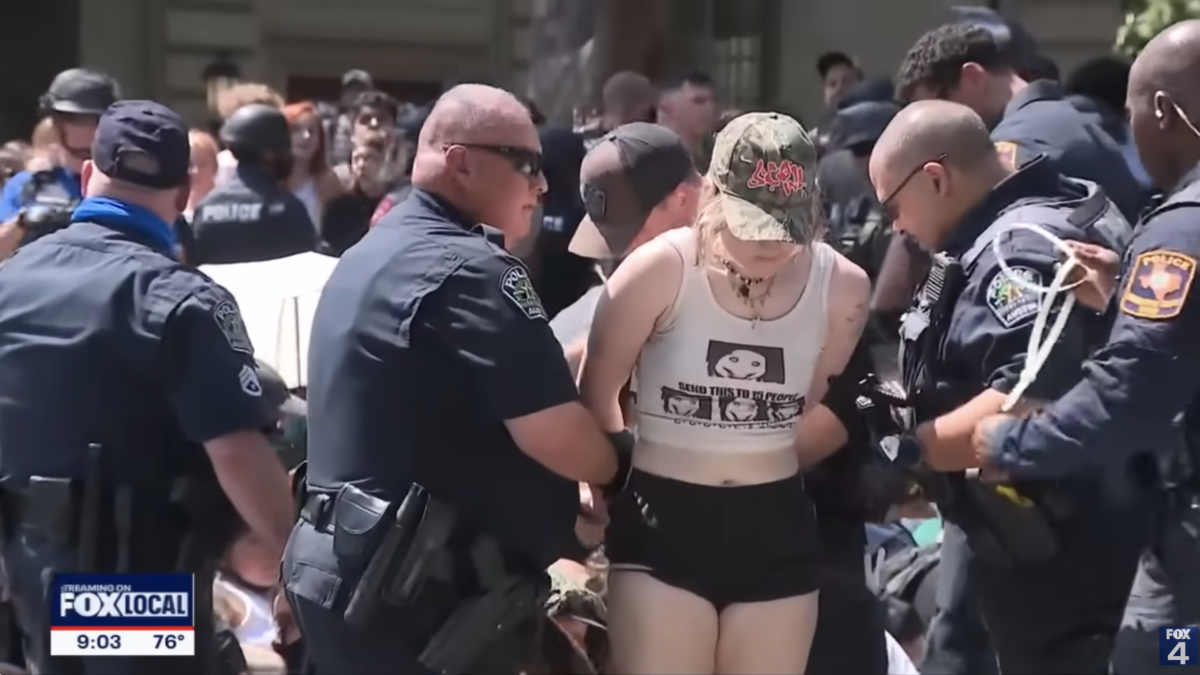
If you’ve been following along, you’ll know “The Magicians” on SyFy is my favorite show. I love it even as much as I love “Star Trek,” which is why my sadness at its downhill turn is so severe. It’s based on Lev Grossman’s “Magicians” trilogy, and the SyFy series has been helmed by show co-creators Sera Gamble and John McNamara since 2015. It follows the story of Quentin Coldwater and friends as they attend Brakebills University, a sort of grad school Hogwarts, full of egocentric elites who study magic and wield it to mend little objects, travel to other dimensions, or save the world, depending on the story arc.
“The Magicians” killed off its main character because he was a heteronormative white dude, and we’re not supposed to tell stories about them anymore. Knocking boy-hero Quentin Coldwater, played by Jason Ralph, into the oblivion of cancellation was a meta-narrative move that left a hero vacuum. The season five storylines shoot off into different directions, with every ensemble ingenue believing his or her story is the main one, but not leaving ample time in the 50-minute episodes to make enough headway into any of them to truly care, or have any clear idea of what’s happening.
At the end of season four, Quentin sacrificed himself to save his friends and the woman he loved. Along with many diehard fans of this off-beat show, I nearly wept. After all that, “The Magicians” season five launched with a disappointing premiere.
‘The Magicians’ Kills off the White Hetero Guy
Quentin was the anti-hero, the unlikely lead, a shy, morose, semi-suicidal 20-something who lacked confidence but had talent and a willingness to sacrifice himself for the greater good. When he died, the concept of traditional narrative died with him. Viewers were clued into the possibility that this might happen in a season four episode called “The Side Effect.” The writers gave us the reason they would be willing to ditch the hero in favor of a collection of “side characters.”
In the episode, Penny, played by Arjun Gupta, is an underworld librarian (just go with it) who was once one of our merry band of magicians, and is now administrating the shelving of books that contain the total life stories of every person on earth. He meets a cisgender, heteronormative, male, white, noob librarian and schools him on how not to peg the importance of a story to the identity of that story’s hero. In doing so, he walks us viewers through exactly how “The Magicians” meta-narrative will go down.
Turns out the heteronormative white guy has filed the books of Penny and his friends under “Side Characters in Epic Quests,” while Quentin got the heroes’ treatment. “I’m a side character?” Penny quips with a knowing smile. “No offense,” the new guy defends. “It’s just, Quentin’s the center of the whole thing. He’s the one that knows everybody. He’s the one the little British girl picked to save the world.”
“Or he’s the one that looks like you,” Penny retorts. “All I’m saying is you think you’ve seen stories like this before so you can guess what’s going to happen, who’s important, and who isn’t. But that’s because you were trapped in your p.o.v. You have a classic case of white male protagonism, Derick, and a librarian simply can’t have that. But that’s why these books are so important. They’re such a gift; they can allow you to see other points of view. And once you start seeing that, you’ll find that the story doesn’t end the way you think, and the most important characters aren’t who you expect.”
A mere six episodes later, this very thing comes to pass. Our hero is killed, and in his stead, as we open up season five, is a reckless assortment of ensemble stories that neither capture the imagination nor drive a cohesive plot forward.
Flipping the Hero’s Narrative Upside Down
The plan to kill Quentin was intentional, and show creators Sera Gamble and John McNamara had a conversation with Jason Ralph and Lev Grossman about what would happen if they took out Coldwater. Speaking to the Hollywood Reporter, McNamara said, “[F]rom a dramaturgical point of view, it’s kind of great that at last, the white male lead on a show is no longer safe.” The reality, of course, is that the male lead was only safe on television. In real life, he gets shot out of the sky nearly every time.
While Ralph loses his lead on “The Magicians” due to the showrunners’ desire to upend the narrative, his wife, Rachel Brosnahan, is secure in the heroine’s role on Amazon’s “The Marvelous Mrs. Maisel,” precisely because her story arc does not meet the archetypical structure. Her qualifications for heroine include her willingness to chuck her kids aside in order to pursue her career, and instead of this being considered a serious flaw, it’s an asset to her character’s journey.
Mrs. Maisel eschews the traditional, maternal archetype model wherein a woman sacrifices herself for her children, and instead gives her children to the world. Quentin Coldwater upholds the hero archetype of sacrifice, giving it all to save others. The message of meta-narrative is clear: Upending the archetypes that have sustained Western culture — despite pitfalls, but no culture is without them — is what’s up. These are the trenches in which culture is forged and new stories are made.
In the first episode, new characters were introduced en masse. Circumstances had changed during the off season and were revealed with clunky exposition. The main characters that remained each helmed their own plot lines, and while these will undoubtedly intersect at some point, the message is that narrative is disjointed, that is has no central figure, that each person’s story is essential and universal in its own right and deserves as much attention and focus as the so-called hero story does.
‘The Magicians’ Loses a Crucial Focal Point
The only problem is that while that’s a great lesson for real life — realizing that each person’s life is as important to him as ours is to us humanizes us and our fellow travelers — in a narrative story line, it leads to fracturing and to an audience that’s unsure where to focus their attention. With each story given equal weight, it doesn’t feel like any story truly matters.
When relativism meets narrative, it becomes boring, just like any inane Jay McInerney story where you invest in a hero only to have him die a meaningless death. This is why the French, objectivist, “new novel” style stayed where it belonged, in the 1960s. Narrative is best with a focal point; that’s what life is. What we want in narrative is a way to view ourselves as the hero of our own stories, not a reason to think everyone else is more important.
With the airing of episode two in this new season, “The Magicians” leans even harder into grief, and it’s the one thing each of the characters have in common. They are all missing Quentin, or their addiction, or their memories. The stories are still divergent, and it’s unclear what they are doing or why, other than trying to start over, to figure out a new plot.
The killing of Quentin Coldwater left a void the new stories didn’t fill. Julia, one of Quentin’s grieving friends, tries. “I don’t think the universe is really looking out for anyone,” she says. “If I wait for you to tell me to be the hero, then I’m just buying into your bullsh-t. In real life, you don’t get chosen. You choose your quest. And I’m choosing mine. I got magic back because Quentin died. And I think I figured out what I’m gonna do with it. I’m gonna figure out what’s causing the apocalypse, and I’m gonna stop it.”
The hero arc is not about identity factors, it is an archetypal journey of risk and sacrifice. It doesn’t need to be a white guy, and it doesn’t need to be a guy — although a woman’s heroine arc is different, must be different, and is not lessened for being so.
It looks like Julia is going to make a go at being the heroine of this story, replacing Quentin by intentionally embracing the hero’s journey. But she’s wrong about one thing: A hero doesn’t choose his journey, he is forged by trial and circumstance. Saving the world may sound like a noble cause, but it means nothing if there’s not a person at the center of it, fighting for what he loves. The world itself is not enough. Narrative is too personal a journey for that.









